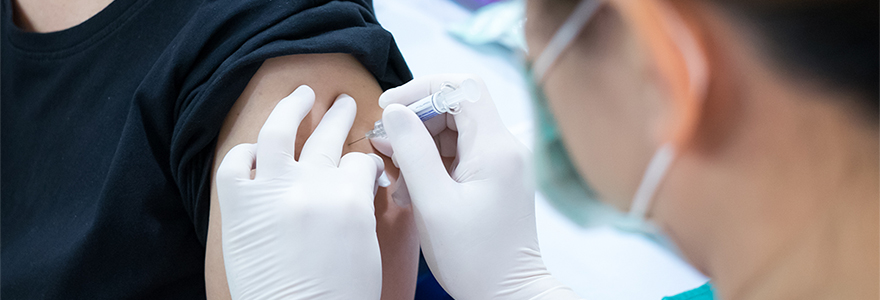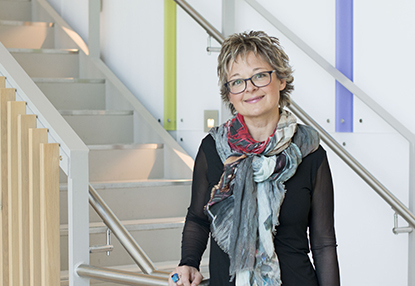Research News: Global study shows elective surgery patients should be prioritized for COVID-19 vaccines

A new global modelling study shows patients waiting for elective surgery should be prioritized above the general population for COVID-19 vaccines.
The international team of researchers estimates that global prioritization of vaccination for elective surgery patients could prevent 58,687 COVID-19-related deaths in one year.
Western University Associate Professor Janet Martin is part of the COVIDSurg Collaborative, which examined data for more than 140,000 patients from 1,667 hospitals in 116 countries.
The study, conducted in collaboration with lead researchers at the University of Birmingham and published today in the BJS (incorporating the British Journal of Surgery and the European Journal of Surgery) is the world’s largest international prospective study on surgery.
 “Based on what we know about the number of surgeries that occur globally, we were able to show we could save close to 60,000 patients around the world if we can immediately prioritize elective surgery patients for vaccines,” said Martin, Associate Professor at Western’s Schulich School of Medicine & Dentistry.
“Based on what we know about the number of surgeries that occur globally, we were able to show we could save close to 60,000 patients around the world if we can immediately prioritize elective surgery patients for vaccines,” said Martin, Associate Professor at Western’s Schulich School of Medicine & Dentistry.
Previous studies have shown that between 0.6 and 1.6 per cent of patients develop COVID-19 infection after elective surgery. These patients face a four- to eight-fold increase in risk of death during the 30 days following their operations. For example, patients over 70 undergoing cancer surgery would usually have a 2.8 per cent mortality rate, and this increases to 18.6 per cent if they develop COVID-19.
The researchers calculated that vaccinating surgical patients is more likely to prevent COVID-19-related deaths than vaccinating the population at large. The research estimates that in patients 70 and older, 1,840 people in the general population need to be vaccinated to save one life per year, while the number drops to 351 in patients older than 70 having cancer surgery.
“We used the evidence available for vaccine efficacy, along with what our large surgical study showed about increased risk of contracting and dying from COVID-19 to estimate the impact of vaccination on all patients undergoing inpatient elective surgery,” Martin said.
In Canada, this is the first piece of evidence to identify surgical patients as a risk group that should be prioritized for vaccination. While older adults and cancer patients are already prioritized, the study showed a clear benefit to vaccinating every age group for every type of elective surgery, Martin said.
“In every single age group that we looked at there was an advantage of having the vaccine before surgery, even among 18- to 49-year-olds and 50- to 69-year-olds, most of whom are not yet eligible for the vaccine."
Researchers should work with health authorities to see that surgical patients are prioritized, she said.
The study collaborators also said pre-surgery vaccination is particularly important for low- and middle-income countries, where mitigation measures such as nasal swab screening and COVID-free surgical pathways are unlikely to be universally implemented.
“Restarting elective surgery is a global priority," said co-lead author Dr. Dmitri Nepogodiev of the University of Birmingham. "Over 15,000 surgeons and anaesthetists from across 116 countries came together to contribute to this study, making it the largest ever scientific collaboration. It’s crucial that policymakers use the data we have collected to support a safe restart to elective surgery. COVID vaccination should be prioritized for elective surgery patients ahead of the general population.”








